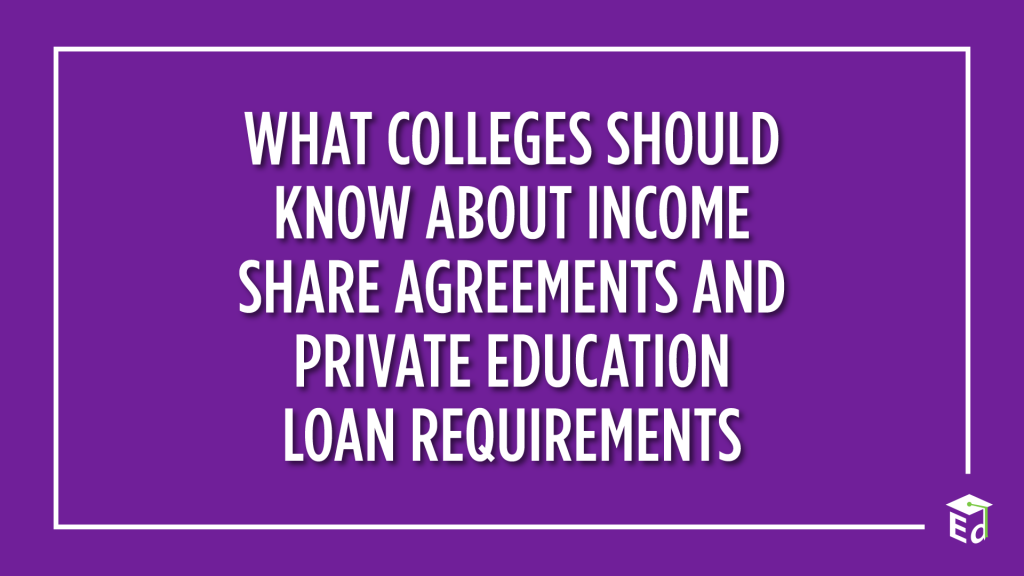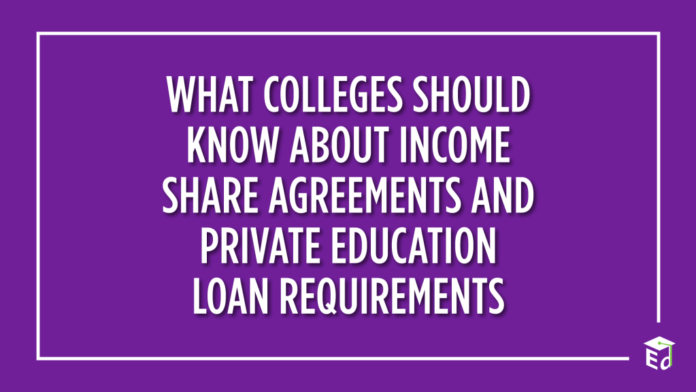
By: Rich Williams, Chief of Staff, Office of Postsecondary Education
Paying for higher education involves more than just completing the FAFSA® form and accepting financial aid. For most students, figuring out how to pay for college is the first major financial decision of their lifetimes—and the stakes could not be higher. A wrong choice can saddle students with higher college costs that follow them long into the future.
It’s no surprise that students often look to their college as a trusted source of information as they determine how to pay for tuition, housing, books, and other living expenses. Capitalizing on this trust, some banks and lenders have long viewed colleges as a gateway to new consumers, courting schools to become their preferred provider of education loans and other financial products. In many cases, these companies provide inducements and financial incentives to colleges who market their financial products above others. Without guardrails, these financial incentives can create conflicts of interest that may drive students to use financial products—branded by trusted college logos—that have high or unusual fees and fewer consumer protections than other widely available products.
Expensive financial products can leave many vulnerable students deeper in debt, and unexpected fees can threaten their path toward graduation. In many instances, Congress, the U.S. Department of Education, and other state and federal regulators have taken steps to protect students by requiring clear disclosures, restricting high and unusual fees, and prohibiting conflicts of interest on college-endorsed financial products, including credit cards, bank accounts, and student loans.
While these efforts have created safer and more affordable banking options for students, in the decade since the enactment of these protections the lending industry has adapted by creating new financial products and sales tactics. Banks and lenders have sought regulatory gray areas and used the previous administration’s lax oversight in order to take advantage of students in new ways.
It is the Department’s responsibility, along with other financial regulators, to protect students and consumers and to clarify how regulations apply to existing and emerging products.
Today, the Department is taking action to remind all colleges and other entities involved in recommending, promoting, or endorsing private education loan products that they must comply with existing consumer protection requirements for preferred lender arrangements established under the Higher Education Act. With these rules, the Biden-Harris Administration will help to ensure that colleges are acting in their students’ best financial interests when endorsing private student loan products.
Taking out private student loans can be financially risky for students, but the Department’s rules for preferred lender arrangements can help reduce that risk by ensuring that students get unbiased, trustworthy information they need to make borrowing decisions. These rules ensure colleges provide transparency on the terms and conditions of any college-endorsed private student loan and publicly document why they endorse a particular private student loan. Additionally, colleges must commit to a code of conduct that prohibits revenue sharing agreements with a lender and eliminates other conflicts of interest. These are important practices for colleges to consider when endorsing any financial product.
We are also reminding colleges to be aware that the Consumer Financial Protection Bureau (CFPB) recently issued a Consent Order against a student loan originator for misleading borrowers about its income share agreements (ISAs).
The ISAs provided students with upfront money for their education in exchange for a percentage of their future income, among other terms. The CFPB concluded in its Consent Order that the student loan originator’s ISAs failed to provide required disclosures and violated the prohibition against prepayment penalties for private education loans. Additionally, in January 2022, the CFPB updated its examination procedures for private student lending to explicitly reference ISAs.
Accordingly, our announcement clarifies that such ISAs used to finance expenses for postsecondary education are private education loans for the purposes of the Department’s rules on preferred lender arrangements.
After maximizing institutional, state, and federal grants, students who need to borrow for college should generally exhaust their federal student loan options before turning to private student loans that often lack the consumer and repayment protections included in federal student loans. For students who still find themselves in need of additional loans to pay for college, the Department is committed to making higher education more accessible and affordable by supporting good practices that protect borrowers, so students don’t graduate with mountains of debt they can’t repay.
Today’s announcement is another step in that direction.
The Department plans to work with other federal partners to provide, later this year, additional information to colleges on how to further improve the accuracy and consistency of reporting on requirements related to preferred lender arrangements. This information will help students and the public get the clearest picture possible of college-endorsed private student loans marketed to them.






